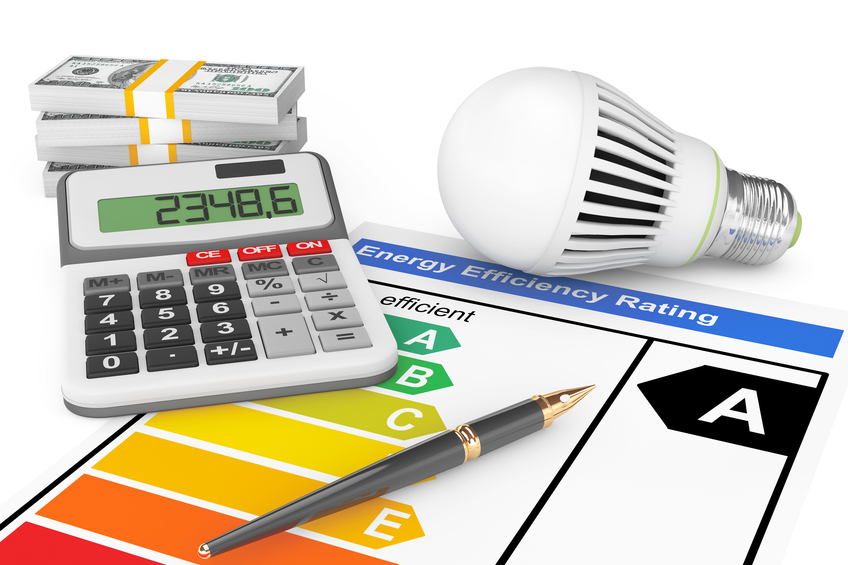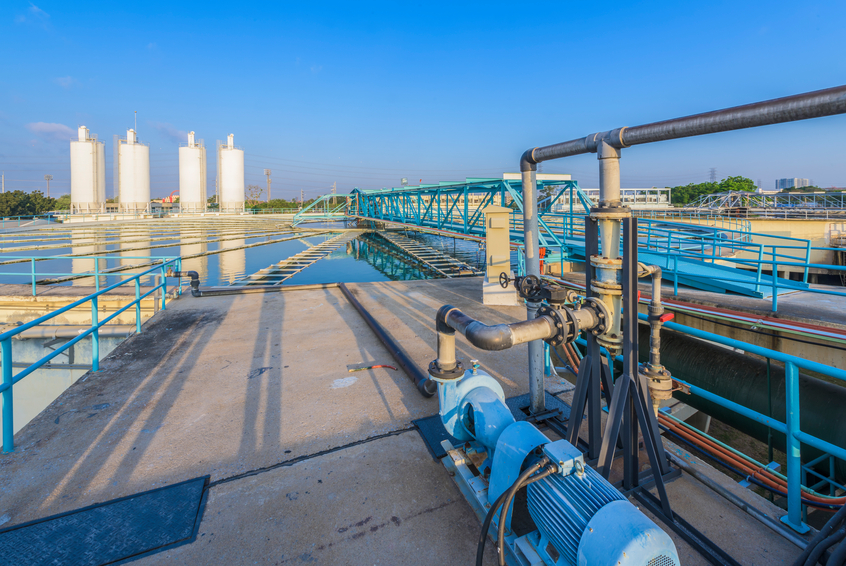District of Columbia Energy Efficiency and Ethics 20 PDH Discount Package 2
Courses in this Package
Home Energy Savings: A Practical Approach (M09-001)
Water Efficiency Management Guide for Mechanical Systems (M02-055)
Wireless Occupancy Sensors for Lighting Controls (E01-012)
Understanding Solar Photovoltaic System Performance (R02-018)
Improving Process Heating Systems Performance (M05-026)
Code of Ethics for Engineers (LE1-001)

This online engineering PDH course provides information on a wide variety of energy-related topics, ranging from simple weatherization, insulation, heating and cooling system improvements in homes, to installing and maintaining efficient water heaters, home appliances and solar panels.
Every year, a typical family in the United States spends around half of its home energy budget on heating and cooling. Unfortunately, many of those dollars are often wasted, because conditioned air escapes through leaky ceilings, walls and foundations, or flows through inadequately insulated attics, pipes, exterior walls and basements. In addition, many appliances, heating systems and air conditioners aren’t properly maintained, are old and inefficient, compared to models being sold today.
By properly maintaining your existing heating and cooling equipment (or replacing aging units with high-efficiency models), addressing weatherization and insulation issues at your house and getting into the habit of using energy efficiently all the time, you can save 10 to 30 percent (or more) on your utility bills every year. You will also help reduce pollution at utility plants that use fossil fuels to generate electricity.
This 9 PDH online course is applicable to electrical and mechanical engineers as well as energy specialists who are interested in learning more about home energy-saving considerations and the collection of systems that work together to achieve peak energy savings and to increase a home’s overall comfort.
This PE continuing education course is intended to provide you with the following specific knowledge and skills:
- Familiarizing with the major sources of air leaks and energy use in a typical home
- Learning about different sealing and insulating materials, their main characteristics and applications
- Understanding the energy saving considerations for heating and cooling systems
- Learning about a set of energy-related units, ratios and terminologies
- Learning about water heating systems and the different approaches to lowering water-heating costs
- Familiarizing with energy-efficient tips and practices for major home appliances
- Familiarizing with the building blocks of solar PV systems
- Gaining a general overview of contracts, installation, maintenance and monitoring of solar energy systems
Upon successful completion of the quiz, print your Certificate of Completion instantly. (Note: if you are paying by check or money order, you will be able to print it after we receive your payment.) For your convenience, we will also email it to you. Please note that you can log in to your account at any time to access and print your Certificate of Completion.

This online engineering PDH course presents guidelines on how to reduce mechanical system water use in residential buildings. Mechanical systems are frequently utilized to provide heating and cooling for residential properties. They typically fall into two categories: centralized and decentralized systems.
Centralized mechanical systems provide heating and cooling from a central location, such as a mechanical room or utility penthouse. These systems are more common in mid- and high-rise multifamily properties and can include cooling towers, boilers, and steam systems, each of which uses water as the heat transfer medium. As a result, the use of water for building heating and cooling can be significant and using sound management practices is a good opportunity for water savings.
Decentralized mechanical systems treat each unit of a multifamily property as its own space, as if each unit were a stand-alone single-family residence. These systems do not typically use process water, so they are not the focus of this water efficiency management guide.
This 2 PDH online course is intended for mechanical, environmental and civil engineers, as well as other technical personnel who are interested in learning more about reducing water use in mechanical systems.
This PE continuing education course is intended to provide you with the following specific knowledge and skills:
- Understanding the basics principles behind single-pass cooling, cooling towers and boiler/steam systems
- Understanding mechanical system water use
- Familiarizing with the maintenance and best management practices
- Knowing the mechanical systems retrofit and replacement options
- Familiarizing with the water savings calculations and assumptions
Upon successful completion of the quiz, print your Certificate of Completion instantly. (Note: if you are paying by check or money order, you will be able to print it after we receive your payment.) For your convenience, we will also email it to you. Please note that you can log in to your account at any time to access and print your Certificate of Completion.

This online engineering PDH course provides basic information on wireless occupancy for lighting controls.
Lighting use constitutes about 20% of the total energy consumption in commercial buildings. Adding lighting controls is a simple retrofit option than can save on energy costs while helping to meet agency and federal energy savings mandates. Some energy codes and federal standards require the use of lighting controls.
Studies have shown that adding lighting controls can reduce lighting energy use 10% to 90% or more depending on the use of the space in which the sensors are installed. One study conducted on a university campus found that installing wired occupancy sensors to control lighting in more than 200 rooms in 10 buildings provided an annual cost savings of about $14,000 with a simple payback of 4.2 years.
This 1 PDH online course is applicable to electrical engineers and others interested in gaining knowledge about wireless occupancy for lighting controls for a better sustainable design.
This PE continuing education course is intended to provide you with the following specific knowledge and skills:
- Familiarizing with the different types of occupancy sensors and their characteristics including microphonic, ultrasonic, bluetooth, video image and dual technology
- Gaining a general overview of the codes and standards of lighting controls
- Learning about the types of light source to use for occupancy sensors
- Understanding how wireless sensors are powered and the best practices in using wireless sensors
- Learning about the cost considerations for wire and wireless sensors
Upon successful completion of the quiz, print your Certificate of Completion instantly. (Note: if you are paying by check or money order, you will be able to print it after we receive your payment.) For your convenience, we will also email it to you. Please note that you can log in to your account at any time to access and print your Certificate of Completion.

This online engineering PDH course presents a performance analysis of 75 solar photovoltaic (PV) systems installed at federal sites, conducted by the Federal Energy Management Program (FEMP) with support from National Renewable Energy Laboratory and Lawrence Berkeley National Laboratory.
System data is analyzed for key performance indicators including availability, performance ratio, and energy ratio by comparing the measured production data to modeled production data. The analysis utilizes the National Renewable Energy Laboratory’s System Advisor Model (SAM), which combines a description of the system (such as inverter capacity, temperature derating, and balance-of-system efficiency) with environmental parameters (coincident solar and temperature data) to calculate predicted performance.
The measured performance metrics are useful in that they provide realistic expectations of performance, and owners of existing systems may compare their own measured performance values to the average and focus on corrective actions.
This 2 PDH online course is applicable to mechanical and electrical engineers and energy specialists who are interested in learning more about the performance of solar photovoltaic systems.
This PE continuing education course is intended to provide you with the following specific knowledge and skills:
- Familiarizing with the key performance indicators of PV systems
- Understanding the research methodology of the proposed study
- Analyzing a statistical summary of key performance indicators across a sample of PV systems and drawing conclusions
- Gaining an overview of the future steps and resources for agencies interested in improving photovoltaic system performance
Upon successful completion of the quiz, print your Certificate of Completion instantly. (Note: if you are paying by check or money order, you will be able to print it after we receive your payment.) For your convenience, we will also email it to you. Please note that you can log in to your account at any time to access and print your Certificate of Completion.

This online engineering PDH course describes basic process heating applications and equipment, and outlines opportunities for energy and performance improvements. It also discusses the merits of using a systems approach in identifying and implementing these improvement opportunities for Fuel-Based and Electric-Based heating systems. Furthermore, it provides recommendations to financially justify process heating improvement projects (System Economics).
Process heating is essential in the manufacture of most consumer and industrial products, including those made out of metal, plastic, rubber, carbon fiber, concrete, glass, and ceramics. Process heating systems are broken into three basic categories: Fuel-Based Process Heating, Electric-Based Process Heating, and Steam-Based Process Heating all of which are discussed in details.
This 5 PDH online course is applicable to mechanical, industrial and process engineers, designers, manufacturers and all personnel involved in the planning, design and installation of process heating systems.
This PE continuing education course is intended to provide you with the following specific knowledge and skills:
- Understanding the basics behind process heating operations
- Familiarizing with the common types of process heating systems and equipment
- Recognizing efficiency opportunities for fuel-based and electric-based heating systems
- Learning how to financially justify process heating improvement projects
Upon successful completion of the quiz, print your Certificate of Completion instantly. (Note: if you are paying by check or money order, you will be able to print it after we receive your payment.) For your convenience, we will also email it to you. Please note that you can log in to your account at any time to access and print your Certificate of Completion.

This online engineering PDH course introduces engineers to the National Society of Professional Engineers Code of Ethics. The Code provides ethical guidance to engineers in their various and often simultaneously held roles as 1) guardians of public health, safety, and welfare 2) employees, 3) employers, and 4) providers of technical service to clients.
Engineers practicing their profession encounter not only technical issues but also ethical issues. Sometimes the latter issues are easy to resolve: applying everyday, common-sense notions of honesty, openness, responsibility, and lawfulness is sufficient to guide the engineer to the appropriate decision. At other times, however, matters are more complicated. In particular, knowing what to do when two or more duties or obligations conflict can be difficult. For example, an engineer's duty to his client or employer may conflict with the engineer's duty to the general public. Codes of ethics have been formulated to help engineers address these conflicts.
This 1 PDH online course is intended for all engineers who are interested in gaining a better understanding about how to protect and respect their engineering profession in the utmost manner.
This PE continuing education course is intended to provide you with the following specific knowledge and skills:
-
Learning the six Fundamental Canons of the Code
-
Learning the five Rules of Practice
-
Learning the nine Professional Obligations
-
Understanding the definition of "Sustainable Development"
-
Understanding the scope of the Supreme Court decision regarding NSPE, competitive bidding, and antitrust law
In this professional engineering CEU course, you need to review the course document "Code of Ethics for Engineers" published by the National Society of Professional Engineers (NSPE) on July 2007. This course document is reprinted by permission of the NSPE (www.nspe.org) and may be downloaded from the NSPE's website by clicking on Code of Ethics for Engineers, or by clicking on the link below.
Once you complete your course review, you need to take a multiple-choice quiz consisting of ten (10) questions to earn 1 PDH credit. The quiz will be based on this NSPE publication.
Upon successful completion of the quiz, print your Certificate of Completion instantly. (Note: if you are paying by check or money order, you will be able to print it after we receive your payment.) For your convenience, we will also email it to you. Please note that you can log in to your account at any time to access and print your Certificate of Completion.